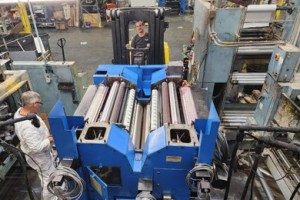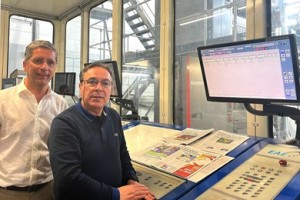From being a drag last year, Norske Skog's Boyer magazine paper project is expected to boost revenues in 2015, the newsprint maker says.
Overall, the group has reported fourth quarter gross operating earnings (EBITDA) of NOK 190 million, down from 208 million in the third quarter.
In Australasia however, paper prices are "to a large degree stable" because of long-term contracts and the logistical advantage the company has over non-domestic producers. "Export volumes for newsprint out of Australasia track international prices in Asia and is still expected to be challenging," says president and chief executive Sven Ombudstvedt.
Increased operating revenues and cost of materials in the period was due to full production on the Boyer machine. Gross operating earnings increased to NOK 92 million in fourth quarter, up from NOK 59 million in the third quarter, due to completion of the ramp-up at Boyer, lower fixed costs and seasonally higher sales volumes.
Demand for newsprint in Oceania decreased by six per cent in 2014, compared to 17 per cent in 2013. Demand for magazine paper in Oceania declined by two per cent last year. Capacity utilisation was 93 per cent in the fourth quarter compared to 94 per cent in the third quarter.
The group reports that previously announced capacity cuts in the industry should lead to an improved market balance for newsprint and magazine paper.
"In a very demanding market, our capacity utilisation in the fourth quarter remained high at around 86 per cent," it says. "The successful completion of the 290 million Euros in senior secured notes issue and the extended maturity profile enables full operational efforts in 2015."
Performance is "in line with what we expected for 2014" with important investments completed at Saugbrugs and Boyer giving the group a cost-competitive edge in their respective markets. "We believe that we are in a better cost position and are more competitive compared to prior years, due to continued cost reduction programmes, an advantageous currency situation, a lower oil price and better economies of scale at our remaining units," says Ombudstvedt.















Comments